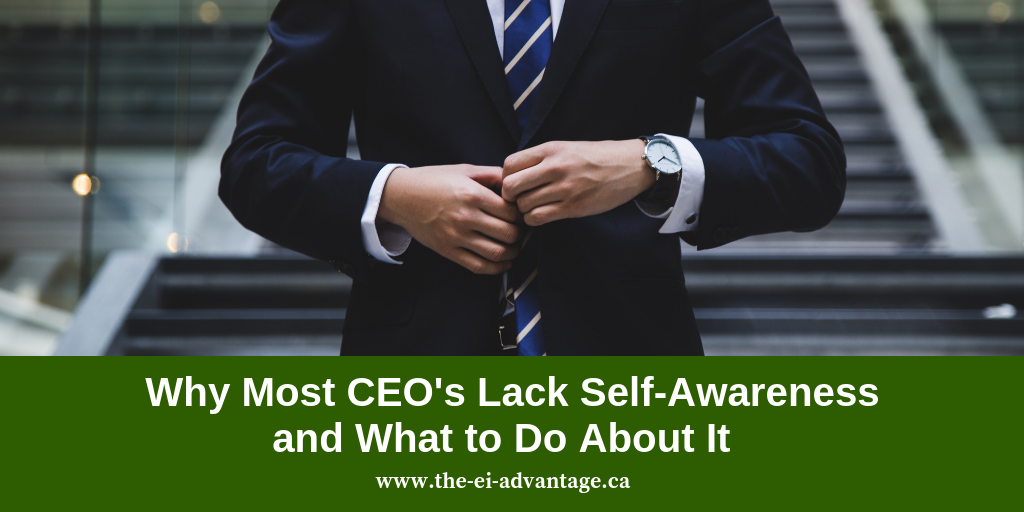Blog
Why Most CEO’s Lack Self-Awareness, and What to Do About It
February 07, 2019

A recent study published in the Journal of Clinical and Social Psychology concluded that while most people think they have well-developed emotional intelligence (EI), only 10-15% people are actually as self-aware as they think.
This is a pretty astonishing statistic, and it gets worse when applied to individual’s self-perception of senior leadership: according to an article from Harvard Business Review (HBR) discussing the findings, which states the following:
“The more power a leader holds, the more likely they are to overestimate their skills and abilities. One study of more than 3,600 leaders across a variety of roles and industries found that, relative to lower-level leaders, higher-level leaders more significantly overvalued their skills (compared with others’ perceptions). In fact, this pattern existed for 19 out of the 20 competencies the researchers measured, including emotional self-awareness, accurate self-assessment, empathy, trustworthiness, and leadership performance”.
Do You Have “CEO’s Disease”?
One explanation for this phenomena is what psychologist Tasha Eurich calls “CEO’s Disease”. This phenomena occurs when someone gets promoted up the corporate ladder to a position of leadership, and becomes less self-aware as they are promoted because they receive less candid feedback from others.
If you think about it, this makes sense: the higher up in the organization’s leadership you are, the more at risk others feel in providing honest feedback.
Treating the Symptoms of “CEO’s Disease”
A natural reaction to this news would be to insist on scheduling 1:1 meetings with anyone who reports directly to us and request direct feedback on how we’re doing. This is not the appropriate approach.
As discussed, the higher your seniority level compared to your staff, the more at-risk they will feel being open and honest with you, which not only puts your team in an uncomfortable position, but also increases the likelihood that this exercise will not yield the results you’re looking for.
Some CEOs might feel compelled to ask the HR director for feedback about how people perceive them, which can confuse the issue even further since the HR leader might also be afraid to provide honest feedback.
Instead, we suggest using anonymous feedback. While some team members might still feel apprehensive about being honest, our clients have shown us again and again that senior leadership responds best when they receive feedback related to their performance on an anonymous basis.
One way to further develop a better understanding of your self-awareness is to have an Emotional Intelligence-based assessment.
Get Help With a “Coach Approach”
Overcoming issues like a lack of self-awareness can be challenging, which is why it’s best to work with qualified professionals who can guide you through the process of incorporating your feedback and turn it into an actionable approach to your leadership development.
After all, it can be challenging and potentially upsetting to hear feedback from team members about how we could improve, and collaborating with a professional can keep you from personalizing and rationalizing feedback instead of using it as a chance to take action.
The best approach is to enroll in a training or coaching program that will provide you with the context and support to interpret and apply your feedback. Even better: leadership development focused on EI will give you insights and strategies to improve yourself based on the feedback you receive.
Want to learn more about how we can help you improve your performance and abilities as a leader? Contact us today or reach out on Facebook, LinkedIn, or Twitter.
